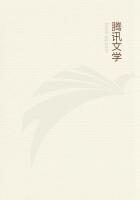Nelson pursued them with ten sail of the line and three frigates. "Take you a Frenchman apiece," said he to his captains, "and leave me the Spaniards: when I haul down my colours, I expect you to do the same, and not till then."The enemy had five-and-thirty days' start; but he calculated that he should gain eight or ten days upon them by his exertions. May 15th he made Madeira, and on June 4th reached Barbadoes, whither he had sent despatches before him; and where he found Admiral Cochrane, with two ships, part of our squadron in those seas being at Jamaica. He found here also accounts that the combined fleets had been seen from St. Lucia on the 28th, standing to the southward, and that Tobago and Trinidad were their objects. This Nelson doubted; but he was alone in his opinion, and yielded it with these foreboding words: "If your intelligence proves false, you lose me the French fleet." Sir W. Myers offered to embark here with 2000 troops; they were taken on board, and the next morning he sailed for Tobago. Here accident confirmed the false intelligence which had, whether from intention or error, misled him. Amerchant at Tobago, in the general alarm, not knowing whether this fleet was friend or foe, sent out a schooner to reconnoitre, and acquaint him by signal. The signal which he had chosen happened to be the very one which had been appointed by Col. Shipley of the engineers to signify that the enemy were at Trinidad; and as this was at the close of the day, there was no opportunity of discovering the mistake. An American brig was met with about the same time, the master of which, with that propensity to deceive the English and assist the French in any manner which has been but too common among his countrymen, affirmed that he had been boarded off Granada a few days before by the French, who were standing towards the Bocas of Trinidad. This fresh intelligence removed all doubts. The ships were cleared for action before daylight, and Nelson entered the Bay of Paria on the 7th, hoping and expecting to make the mouths of the Orinoco as famous in the annals of the British navy as those of the Nile. Not an enemy was there; and it was discovered that accident and artifice had combined to lead him so far to leeward, that there could have been little hope of fetching to windward of Granada for any other fleet. Nelson, however, with skill and exertions never exceeded, and almost unexampled, bore for that island.
Advices met him on the way, that the combined fleets, having captured the Diamond Rock, were then at Martinique on the fourth, and were expected to sail that night for the attack of Granada. On the 9th Nelson arrived off that island; and there learned that they had passed to leeward of Antigua the preceding day, and had taken a homeward-bound convoy. Had it not been for false information, upon which Nelson had acted reluctantly, and in opposition to his own judgment, he would have been off Port Royal just as they were leaving; it, and the battle would have been fought on the spot where Rodney defeated De Grasse. This he remembered in his vexation; but he had saved the colonies, and above 200ships laden for Europe, which would else have fallen into the enemy's hands; and he had the satisfaction of knowing that the mere terror of his name had effected this, and had put to flight the allied enemies, whose force nearly doubled that before which they fled. That they were flying back to Europe he believed, and for Europe he steered in pursuit on the 13th, having disembarked the troops at Antigua, and taking with him the SPARTIATE, seventy-four; the only addition to the squadron with which he was pursuing so superior a force. Five days afterwards the AMAZON brought intelligence that she had spoke a schooner who had seen them on the evening of the 15th, steering to the north; and by computation, eighty-seven leagues off. Nelson's diary at this time denotes his great anxiety and his perpetual and all-observing vigilance.













